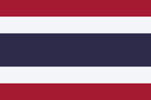Chemycal has been acquired by 3E
Learn MoreChemycal has been acquired by 3E
Learn MoreDiscover how Chemycal PRO helps you boosting your regulatory monitoring:

A hazardous heap of electronic waste was found by a joint military-police raid at a rubbish recycling plant in Pathum Thani's Lam Luk Ka districtlast month. (Photo by Apichit Jinakul)
Since China imposed a ban on its import at the end of last year, electronic waste (e-waste), mainly from the United States and Europe, has had to be diverted to alternative destinations. Before then, it was estimated that roughly 70% of e-waste ended up in China. A series of local news reports on illegal imports of e-waste since the beginning of this year revealed that Thailand may have become one of the main destinations.
E-waste refers to discarded electrical or electronic devices such as freezers, washing machines, televisions and batteries. Such waste contains toxic chemicals classified as "hazardous waste".
The international movement of hazardous waste is governed by the Basel Convention on the Control of Transboundary Movements of Hazardous Wastes and their Disposal to which both China and Thailand are signatories. The convention aims to prevent the flow of e-waste from developing countries to less developed ones by prohibiting the cross-border transport of such hazardous waste unless consent is obtained from both the exporting and importing countries.
CONTINUE READING ON www.bangkokpost.com
2013 © MyChemicalMonitoring. ALL Rights Reserved. About Us | Terms and Conditions